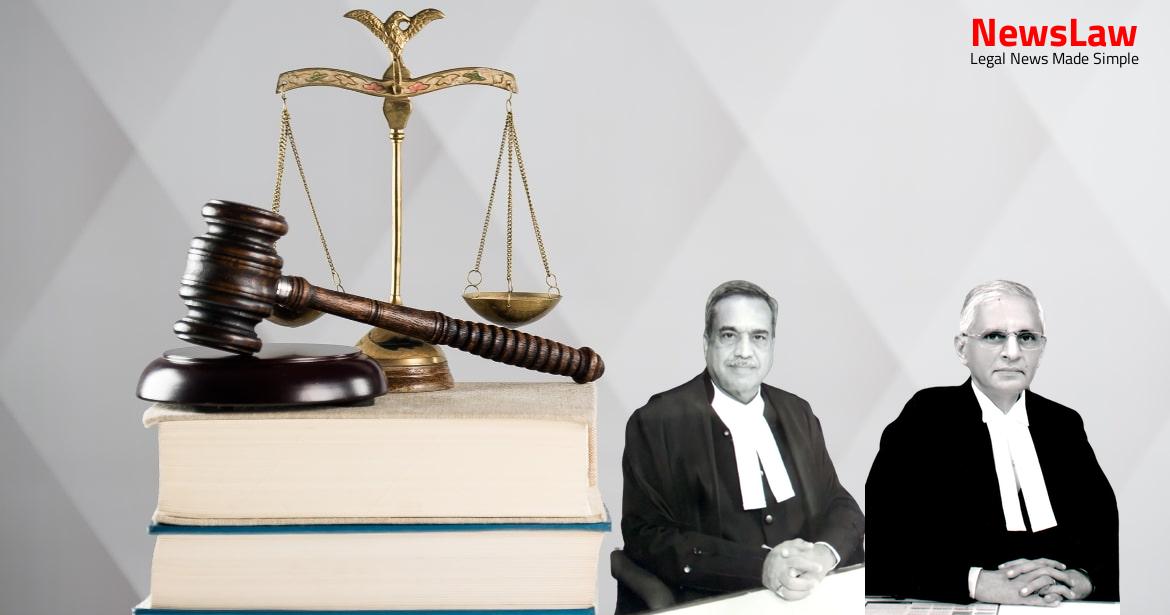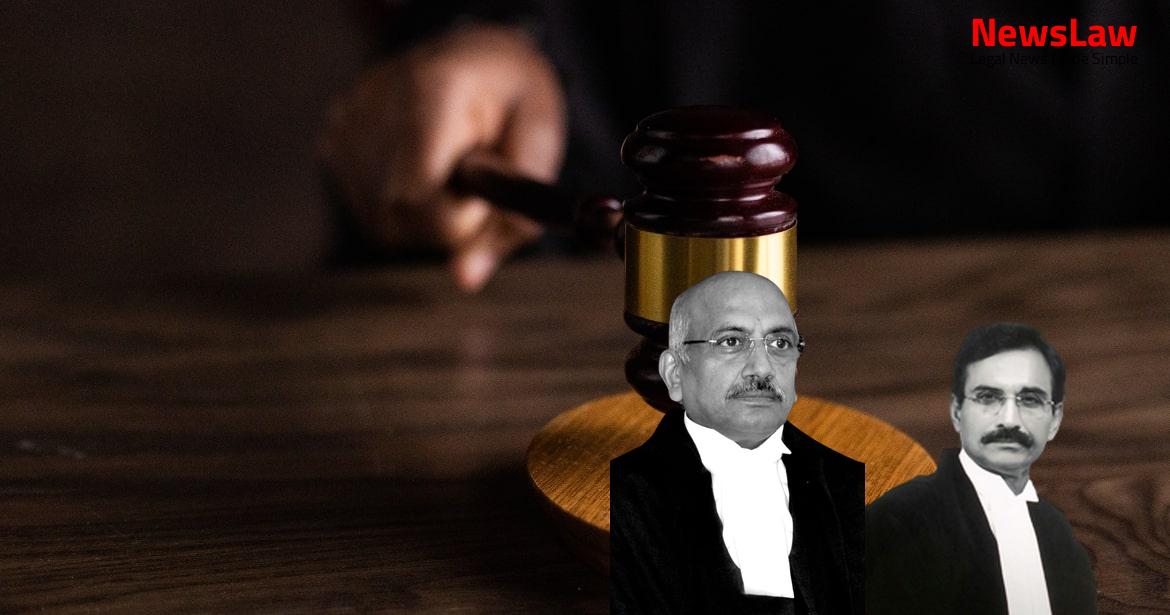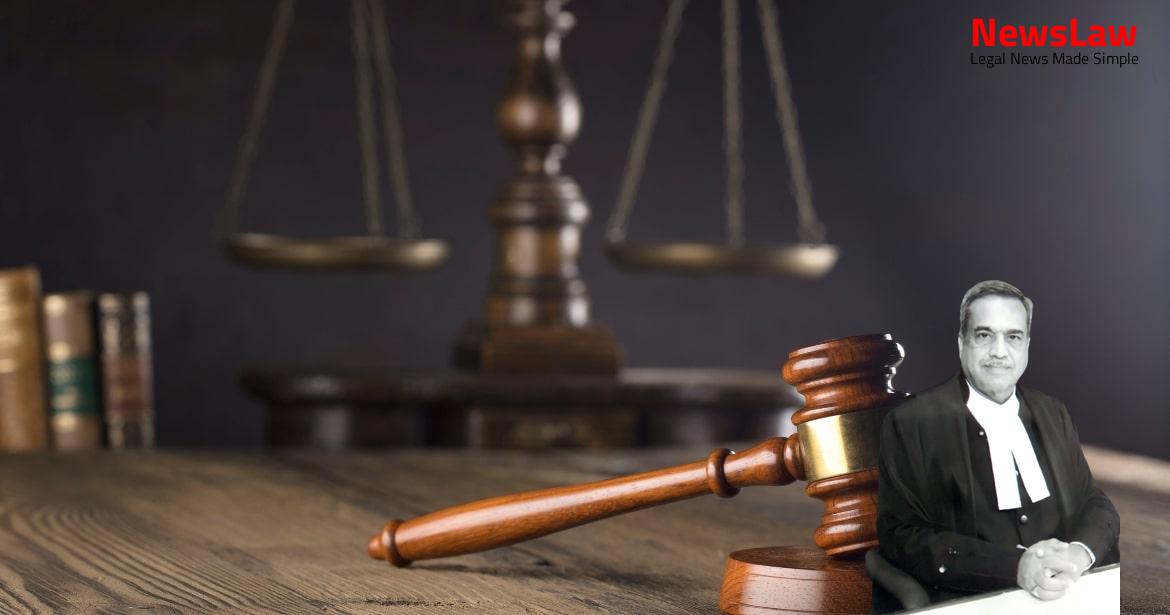Delve into the intricate legal analysis of a case involving the suppression of material facts in employment. The court’s meticulous examination of the employee’s actions sheds light on the significance of transparency and honesty in the hiring process. This summary elucidates how the court’s decision underscored the employer’s right to terminate services based on misrepresentation or suppression of crucial information. Follow along for a deep dive into the legal considerations surrounding employment law and ethics.
Facts
- Respondent convicted for offences under Sections 341 & 323 IPC by the trial Court.
- Appeal partially allowed by learned Sessions Court with benefit of Section 12 of the Act 1958.
- Show cause notice issued and respondent’s services terminated due to suppression of material fact of conviction.
- High Court quashed termination, directed reinstatement based on benefit of Section 12 and judgement in Avtar Singh case.
- Division Bench upheld High Court decision, emphasizing trivial nature of dispute and applicability of Section 12.
- The respondent-employee was granted probation for good conduct under the Act 1958 despite a conviction and penalty.
- The respondent-employee deliberately suppressed the fact of conviction and penalty during the application process and document verification.
- The Superintendent of Police report revealed a criminal case against the respondent-employee for offenses under Sections 143, 341, 323 IPC.
- The respondent-employee qualified for the post of Technical Helper after a written test in 2014 and was appointed on probation in May 2015.
- The respondent-employee submitted a false declaration on 14.04.2015 stating no criminal case or conviction against him.
Also Read: Judicial Review of Delayed Writ Petition
Arguments
- The employer would not have employed the employee if the criminal trial and/or conviction had been disclosed at the relevant time.
- The decision in the case of Avtar Singh is not applicable to the present case.
- The order passed by the Single Judge and confirmed by the Division Bench is in line with the decision in the case of Avtar Singh.
- The employee suppressed the material fact of the criminal case at multiple instances, which led to the termination of services.
- The High Court erred in considering the subsequent decision of the Sessions Court granting the benefit under Section 12 of the Act 1958.
- The observations made by the Division Bench regarding the nature of the dispute and the benefit of Section 12 are deemed irrelevant.
- The employee’s initial suppression of facts for obtaining the appointment fraudulently raises concerns about trustworthiness and credibility.
- The omission or lapse of the employee deserves to be condoned, as per the lenient view suggested by the appellants.
- Employer’s decision not to continue an employee who suppressed material facts is justified on the grounds of trust and reliability.
- The employer-appellants failed to consider the extenuating circumstances of the respondent’s case.
- The respondent was granted benefits under sections 3 & 12 of the Act 1958 by the trial court and the sessions court.
- The learned Single Judge in a previous judgment had also noted the lack of consideration by the employer-appellants.
Also Read: Ownership Dispute: Legal Analysis on Admission and Decree
Analysis
- The pendency of a criminal case/proceeding is different from suppressing the information of such pendency.
- Suppressing information of a pending criminal case amounts to moral turpitude.
- An employee obtaining appointment by misrepresenting facts or playing fraud cannot sustain such order.
- Employers have the right to consider antecedents of a candidate, even if truthfully disclosing a concluded case.
- Deliberate statement or omission regarding vital information can be seriously viewed in uniformed services.
- An employee can be discharged from service for suppression of material information, even if acquitted later.
- Fraudulent obtained employment orders can be voided, and the employer has the right to terminate services.
- Purpose of seeking information on antecedents is to assess suitability for the post and dishonesty should not be tolerated.
- Dishonesty should not be permitted to benefit those who have misrepresented themselves.
- Employers have the discretion to terminate services based on misrepresentation or suppression of facts.
- Employee’s application for appointment in 2013 did not disclose his prior criminal conviction and false declaration was filed in 2015.
- Appeal filed by the employee after two years only upon realization that his conviction might affect his job prospects.
- Employer terminated the employee’s services due to non-disclosure of criminal case and false declaration.
- Employee’s conduct in obtaining benefit of Section 12 of the Act 1958 belatedly raises concerns.
- Employee’s credibility and trustworthiness questioned due to initial false declaration and suppression of material facts.
- Employer’s right to terminate services of an employee based on false statement upheld.
- Judgment references highlight the significance of disclosure in character verification for employment.
- Employer’s decision to terminate the employee justified based on subsequent revelation of conviction.
- The Division Bench and the Single Judge made errors in quashing the termination order of the respondent.
- The termination was based on the respondent’s suppression of material facts and filing a false declaration.
- The reinstatement order is deemed unjustified and untenable.
Also Read: Interpretation of Statutory Limitation under Section 263(2)
Decision
- The impugned judgment and order passed by the Division Bench and the order passed by the learned Single Judge, quashing and setting aside the order of termination, are quashed and set aside.
- The writ petition filed by the respondent-employee is dismissed, and the order of termination is restored.
- No costs are awarded in this case.
Case Title: RAJASTHAN RAJYA VIDYUT PRASARAN NIGAM LIMITED Vs. ANIL KANWARIYA (2021 INSC 490)
Case Number: C.A. No.-005743-005744 / 2021



